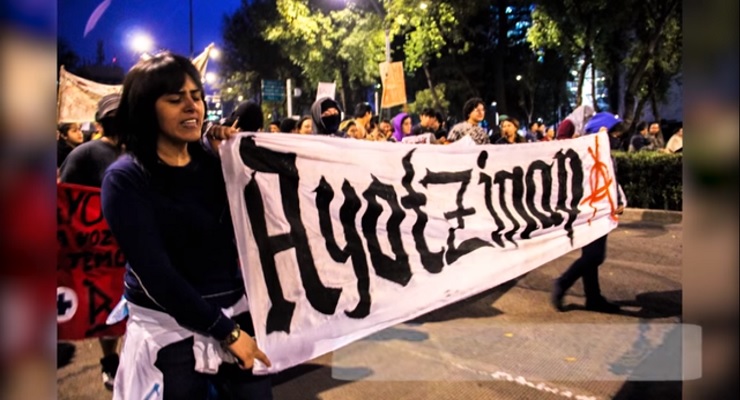
I turn 76 this week and it’s difficult at this age not to take an inventory of all the blessings, many of them no doubt undeserved like the good health and wellbeing of my daughters and loved ones along with the satisfaction of meeting and working with great people this year. Sisters and brothers who keep me grounded, inspired and motivated, like Brother Nativo Lopez who sadly left us unexpectedly in spring of 2019, an all-around community organizing maestro.
I never met the bato
but I knew him well
he marched for all of us
was born to raise hell
He’s not leaving us yet
he’s only taking a break
he went out to confer
with his friends Cesar and Bert
We certainly could use their wisdom this year to guide us against the new NAFTA deal, the mindless Migra attacks, the erosion of the environment and most important the 2020 general elections fight.
The barometer for social climate points to all of these issues as indicators of a stormy 2020 that can only be confronted through social action. Nativo, Cesar and Bert’s best legacy.
However, social action is a highly skilled discipline with a set of protocols we should follow in order to be effective. In civil disobedience all details need to be well discussed and agreed upon before the action takes place.
The power of well-structured picket lines
I learned about managing picket lines when I joined the Farm Workers Union in the early 80’s during one of the conversations with Cesar Chavez. Before that I had the random notion that picket lines were a group of people walking around carrying posters in the form of civil protest. Cesar, in his folksy story-telling style told me that there is an order, structure and protocol in a picket line. That there is a Picket Captain or person in charge of the action who is responsible to talk to the press, police or people target of the protest.
“..This one time..” he said, “we assigned one of my granddaughters as the Captain so when the police came around to ask questions, she came off as a spoiled little brat and the cops didn’t know how to deal with her..” apparently the police felt ridiculed trying to reason with a pre-teen child so they kept trying to talk to other people in the picket line but they all said only the Captain was authorized to make a statement.
The other thing that is important as part of the protocol is that the organization in charge is responsible for all and any actions in the protest. Therefore, contrary to popular belief, a picket is not an open public function where anybody can join. People outside of the group who called or organized the action, should come up to the Captain and ask for permission to join in, otherwise there is a risk that any irresponsible person or provocateur may filter in. The other key positions in the structure are people in charge of leading the chanting, someone in charge of security and someone else in charge of passing out fliers or literature on both sides of the street to pedestrians and people driving by.
In summation the general rules for a picket line are to handle it as a public information protest, to carry posters with writing on big letters and to the point, to spread-out the people as much as possible and not to huddle in one place, to keep in constant motion and chanting to attract attention, to be polite, not to block traffic and never to argue with people that may have opposite views.
My observation as the coordinator of Caravana43, a support campaign for the Ayotzinapa movement on all the picket lines I saw along the trail, was an evident absence of this protocol, order or training. That’s not to say that the actions were not effective because the community showed up, press showed up and the Mexican consulate people got the message, but I think the question remains how much more effective could they have been if they were managed a-la-old-school.
Caravana43 pickets bring me memories of some people huddling together while others marched around, having more than one chanting at the same time, obstructing pedestrian traffic and this one time when a woman rolled down her car window to ask me what Ayotzinapa meant and as I began to explain the red light turned green and she just smiled and drove away.
Leave a Reply